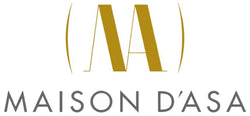Exploring Tunisia: A Mediterranean Gem
Tunisia, a captivating North African country nestled between the Mediterranean Sea and the Sahara Desert, offers a unique blend of ancient history, stunning landscapes, and vibrant culture. From the bustling streets of Tunis to the serene beaches of Djerba, Tunisia beckons travelers with its rich tapestry of experiences. But beyond its historic sites and natural beauty, Tunisia also boasts a fascinating skincare culture deeply rooted in its heritage.

Highlights of Tunisia
-
Tunis: A Blend of Old and New
- Medina of Tunis: Wander through the labyrinthine alleys of this UNESCO World Heritage site, where vibrant souks, centuries-old mosques, and traditional houses offer a glimpse into the past.
- Bardo National Museum: Home to one of the largest collections of Roman mosaics, this museum is a treasure trove of Tunisia's rich history.
-
Carthage: Echoes of an Ancient Empire
- Explore the ruins of this ancient city, once a powerful hub of the Phoenician and Roman empires. The Carthage Museum and the Antonine Baths are must-visit sites.
-
Sidi Bou Said: A Picture-Perfect Village
- Famous for its whitewashed buildings and blue accents, this charming village overlooking the Mediterranean is a haven for artists and photographers.
-
Sahara Desert: An Otherworldly Experience
- Embark on an adventure to the vast Sahara Desert. Experience camel trekking, visit the stunning oasis of Tozeur, and witness the mesmerizing landscapes featured in iconic films like "Star Wars."
-
Djerba Island: A Beach Lover’s Paradise
- Relax on the pristine beaches of Djerba, explore the island's rich Berber culture, and visit the El Ghriba Synagogue, one of the oldest Jewish temples in the world.

The Skincare Culture of Tunisia
Tunisia’s skincare traditions are a blend of ancient practices and natural ingredients, reflecting the country's diverse cultural heritage.
-
Natural Ingredients
- Olive Oil: Rich in antioxidants and vitamins, olive oil is a staple in Tunisian skincare. It's used for moisturizing, cleansing, and even in hair care routines.
- Clay and Mud: Rhassoul clay, sourced from the Atlas Mountains, is prized for its detoxifying and exfoliating properties.
- Rose Water: Distilled from rose petals, this fragrant water is used as a toner to soothe and hydrate the skin.
-
Hammam Rituals
- The hammam, or traditional steam bath, is a cornerstone of Tunisian skincare culture. This ritual involves a series of steps, including steaming, exfoliating with a kessa glove, and applying a nourishing mask. It's not just about cleansing the skin but also about relaxation and socializing.
-
Henna
- Henna, derived from the leaves of the henna plant, is used for both body art and hair care. It's known for its cooling properties and is often applied as a natural dye and conditioner for hair.
-
Argan Oil
- Though more commonly associated with Morocco, argan oil is also used in Tunisia. This “liquid gold” is renowned for its hydrating and anti-aging benefits.
-
Aromatherapy and Essential Oils
- Essential oils extracted from indigenous plants, such as rosemary, lavender, and eucalyptus, are integral to Tunisian beauty regimens. These oils are used for their therapeutic properties and added to various skincare products.
Bringing Tunisian Skincare into Your Routine
If you're inspired by Tunisia's skincare culture, incorporating some of these natural ingredients and rituals into your routine can be both enjoyable and beneficial !

